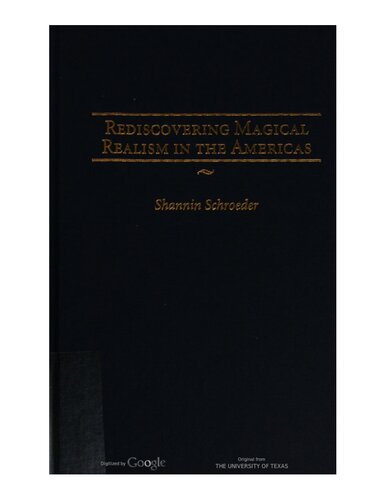

Most ebook files are in PDF format, so you can easily read them using various software such as Foxit Reader or directly on the Google Chrome browser.
Some ebook files are released by publishers in other formats such as .awz, .mobi, .epub, .fb2, etc. You may need to install specific software to read these formats on mobile/PC, such as Calibre.
Please read the tutorial at this link: https://ebookbell.com/faq
We offer FREE conversion to the popular formats you request; however, this may take some time. Therefore, right after payment, please email us, and we will try to provide the service as quickly as possible.
For some exceptional file formats or broken links (if any), please refrain from opening any disputes. Instead, email us first, and we will try to assist within a maximum of 6 hours.
EbookBell Team

4.3
58 reviewsDrawing from a variety of contemporary literature―including such works as One Hundred Years of Solitude, Beloved, and Like Water for Chocolate―Schroeder explores magical realism as one of many common denominators in the literature of the Americas, challenging the notion that magical realism should be defined merely in terms of geography or Latin American history. By relying on an all-encompassing vision of this unique mode of writing, the author argues that the Americas share a literary tradition and validates the North American strain of the mode. In addition, she points to fundamentally similar approaches to fiction that illustrate the ways in which the Americas share a common literature and calls for increased Pan-American scholarship.
Counteracting the critical tendency to label anything unreal or supernatural in literature as magical realism, Schroeder traces the mode through a variety of contemporary works, including well-known and lesser-known examples. Through a carefully articulated history and description of the mode itself, she is able to show that while Latin American and North American fiction share in common certain features of magical realism, their distinctive approaches to it reflect Latin America's third-world concerns and North America's preoccupation with popular culture and capitalism. Tracing the forces of change at work on the mode in an effort to counter the tendency among scholars to apply the label without justification, this book reclaims magical realism as a current and significant term for use in its application to literary works.